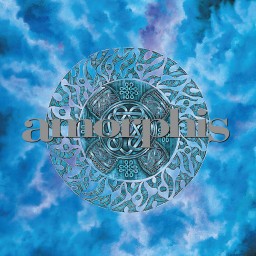 Review by Ben for Amorphis - Elegy (1996)
Review by Ben for Amorphis - Elegy (1996)
Immensely courageous and adventurous album that remains accessible and engaging throughout
Some albums are always going to struggle to match expectations. Amorphis’ Tales From the Thousand Lakes was such a wonderful album, filled to the brim with exquisite melodies and magical atmosphere. I must have listened to it hundreds of times before these Finnish maestros finally got around to recording a follow-up. The problem was that I (at the time) wanted more of the same and Amorphis were simply not willing to repeat the formula, no matter how successful. My first listen to Elegy was one filled with confusion, if not outright disappointment. The band had shifted their sound away from the doom tinged melodic death metal of Tales From the Thousand Lakes into far more experimental and progressive territory. The line-up had also gone through some changes, with Pekka Kasari replacing Jan Rechberger behind the drum kit and Kim Rantala taking over keyboards from Kasper Mårtenson, but the biggest addition was Pasi Koskinen joining the band as a second vocalist, adding his clean vocals to Tomi’s growls. These changes would take some getting used to, and every listen would chip away at the disappointment until I could finally appreciate Elegy for what it is. Another wonderful, adventurous album that demands multiple listens to really appreciate.
Despite how different Elegy is to its predecessor, there’s strangely never any doubt that you’re listening to Amorphis. The band continued their thematic obsession with Finnish folklore, with Elegy being inspired by the Kanteletar, which is a book of poems based on ancient Finnish traditions. Just as with Tales From the Thousand Lakes which was based on the Finnish national pole book Kalevala, this results in some fairly cutesy lyrics that somehow work within the context of the music, despite their strange descriptions and stories. The melodies often take on a similar tone to past recordings, although they are now surrounded by a whole range of audacious musicianship. The standard metallic instruments are seamlessly combined with unusual implements such as the tambourine, the electric sitar and the accordion with the result being an endlessly surprising and unique experience. I will never understand how this band can inject so much curiosity and experimentation and make it sound entirely natural, yet Elegy displays this quality in abundance. Check out Cares to hear melodic death metal, complete with death growls and nice leads, suddenly inject a polka bass line that transforms into blatant dance music (I’m talking glow sticks here), before returning to its origins, all without losing its way. It’s brilliant and ludicrous in equal quantities!
As much as Elegy grew on me after the initial disappointment to the point where I now love it, I still look back far more fondly on the consistent qualities of Tales From the Thousand Lakes, and am much more likely to reach for that album given the choice. With the sort of uninhibited creativity on show throughout this album comes a price I’m afraid. I’ve already mentioned that the band mix numerous elements into each track and still make it appear natural, but this does start to play on personal tastes at some point. It may be the dance section or the polka part, or it could be the death growls or the 70s sounding organ or any of the multitudes of elements, but one or two of them are likely to clash with your personal preferences. It’s the sort of album where the listener needs to leave all preconceptions at the front door before committing to the journey and just experience it. But while Elegy may come across as a challenging album, it’s still a surprisingly accessible one, and one that rewards the listener with its endless details and inimitable spirit. Highlight tracks for me are Against Widows, On Rich and Poor, My Kantele and the awesomely moving title track.
